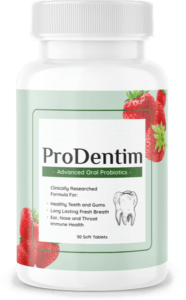 In recent years, the ketogenic (keto) diet has gained widespread popularity as a potential solution for weight loss and improved metabolic health. The diet’s unique approach to nutrition, emphasizing high fat intake and minimal carbohydrates, has sparked both enthusiasm and skepticism. Amidst the fervor, the question remains: How healthy is the keto diet plan? In this article, we will delve into the science behind the keto diet, examine its potential benefits and risks, and provide insights to help you make an informed decision about its suitability for your health and lifestyle.
In recent years, the ketogenic (keto) diet has gained widespread popularity as a potential solution for weight loss and improved metabolic health. The diet’s unique approach to nutrition, emphasizing high fat intake and minimal carbohydrates, has sparked both enthusiasm and skepticism. Amidst the fervor, the question remains: How healthy is the keto diet plan? In this article, we will delve into the science behind the keto diet, examine its potential benefits and risks, and provide insights to help you make an informed decision about its suitability for your health and lifestyle.
Understanding the Basics of the Keto Diet Plan
At its core, the keto diet is designed to shift the body’s primary source of energy from carbohydrates to fats. By drastically reducing carbohydrate intake and increasing fat consumption, the body enters a state known as ketosis. In this state, the liver converts fats into molecules called ketones, which are used for energy. This metabolic shift is believed to facilitate weight loss and offer other health benefits.
Benefits of the Keto Diet Plan
- Weight Loss: One of the most touted benefits of the keto diet is its potential for weight loss. By restricting carbohydrates, insulin levels remain low, leading to increased fat breakdown and utilization of energy.
- Blood Sugar Control: Some studies suggest that the keto diet may improve blood sugar control, making it potentially beneficial for individuals with type 2 diabetes or insulin resistance.
- Epilepsy Management: The keto diet was initially developed as a treatment for epilepsy, particularly in children who did not respond to medication. It continues to be used as a therapeutic option for certain seizure disorders.
- Improved Lipid Profiles: In some cases, the keto diet may lead to improvements in lipid profiles, such as increased levels of “good” HDL cholesterol and reductions in triglycerides.
Potential Risks and Considerations
- Nutrient Deficiencies: The restrictive nature of the keto diet can potentially lead to deficiencies in essential nutrients, including vitamins, minerals, and fiber. Proper supplementation and careful food choices are necessary to mitigate this risk. I usually eat approximately 5 cups of salad per day and incorporate about 3 cups of cruciferous vegetables. I also use wheat grass juice powder in some lemon water. This helps to ensure that I am getting plenty of nutrients.
- Keto Flu: When transitioning into ketosis, some individuals experience “keto flu,” characterized by fatigue, headaches, nausea, and irritability. These symptoms are temporary but can be uncomfortable. Personally, I did not experience this. However, I did increase my salt while transitioning to keto, which is supposed to help with the “keto flu.”
- Gastrointestinal Issues: Some people may experience digestive issues, such as constipation, due to the lack of fiber-rich foods. I had plenty of fiber with the additional vegetables so I did not experience this issue either.
- Heart Health Concerns: While the keto diet may lead to improvements in specific lipid markers, it can also increase levels of LDL cholesterol (“bad” cholesterol) in some individuals, potentially raising concerns about cardiovascular health. If you eat the right kinds of fats this does not seem to be an issue.
- Sustainability: The strict nature of the keto diet can make it challenging to maintain over the long term. Social and lifestyle factors may also make adherence difficult for some individuals. It has not been challenging to maintain. In social gatherings, it is a bit of an issue either due to timing or what is on the menu.
The Importance of Balance and Variation
While the keto diet does offer potential benefits, it’s crucial to approach any diet plan with a focus on balance and variation. Exclusively relying on high-fat foods and neglecting nutrient-dense carbohydrates can deprive the body of valuable vitamins, minerals, and dietary fiber. Incorporating a diverse range of foods, including colorful vegetables, lean proteins, whole grains, and healthy fats, can contribute to overall well-rounded nutrition.

Is the Keto Diet Plan Right for You?
Determining whether the keto diet is a suitable choice depends on various factors, including your health goals, medical conditions, and personal preferences. Consultation with a healthcare professional, such as a registered dietitian or doctor, is essential before embarking on any significant dietary change. They can help assess your individual needs, provide personalized recommendations, and monitor your progress to ensure optimal health outcomes.
A Balanced Approach to Health
The keto diet plan offers both potential benefits and risks. While it may aid in weight loss, blood sugar control, and other health markers, it’s not a one-size-fits-all solution. A balanced approach to nutrition that includes a variety of nutrient-rich foods is crucial for overall health and well-being. If you’re considering the keto diet, consult with a healthcare professional to make an informed decision that aligns with your health goals and lifestyle. Remember, the key to lasting health lies in finding a sustainable eating pattern that nourishes your body and supports your long-term well-being.
